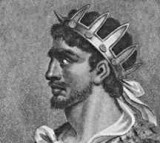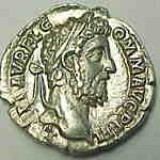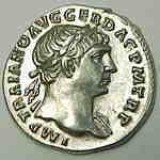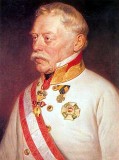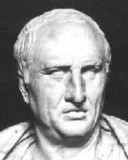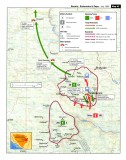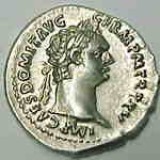List of author's articles

1453 - Fall of Constantinople, the demise of the Byzantine empire (1)
The fall of Constantinople, also known as the conquest of Constantinople, was the capture of the capital of the Byzantine Empire by the Ottoman Empire. The city was captured on 29 May 1453 as part of the culmination of a 53-day siege which had begun on 6 April.

1453 - Fall of Constantinople, the demise of the Byzantine empire (2)
On July 8, 1453, a messenger arrived at Pope Nicholas V. The news he brought shocked Christian Europe. Constantinople, the capital of Byzantine, the former Eastern Roman Empire, which lasted eleven centuries, was conquered by the troops of the Ottoman Turk, Sultan Mehmed II. Fátiha ...

Alaric
Alaric I was the first king of the Visigoths, from 395 to 410. He rose to leadership of the Goths who came to occupy Moesia—territory acquired a couple of decades earlier by a combined force of Goths and Alans after the Battle of Adrianople.
Alaric began his career under the Gothic soldier Gainas and later joined the Roman army. Once an ally of Rome under the Roman emperor Theodosius, Alaric helped defeat the Franks and other allies of a would-be Roman usurper. Despite losing many thousands of his men, he received little recognition from Rome and left the Roman army disappointed. After the death of Theodosius and the disintegration of the Roman armies in 395, he is described as king of the Visigoths. As the leader of the only effective field force remaining in the Balkans, he sought Roman legitimacy, never quite achieving a position acceptable to himself or to the Roman authorities.
He operated mainly against the successive Western Roman regimes, and marched into Italy, where he died. He is responsible for the sack of Rome in 410; one of several notable events in the Western Roman Empire's eventual decline.

Alcibiades
Alcibiades was an Athenian statesman and general. The last of the Alcmaeonidae, he played a major role in the second half of the Peloponnesian War as a strategic advisor, military commander, and politician, but subsequently fell from prominence.
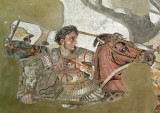
Alexander the Great
He succeeded his father Philip II to the throne in 336 BC at the age of 20, and spent most of his ruling years conducting a lengthy military campaign throughout Western Asia and Egypt. By the age of thirty, he had created one of the largest empires in history, stretching from Greece to northwestern India. He was undefeated in battle and is widely considered to be one of history's greatest and most successful military commanders.

Alexander the Great
Alexander’s short reign marks a decisive moment in the history of Europe and Asia. His expedition and his own personal interest in scientific investigation brought many advances in the knowledge of geography and natural history. His career led to the moving of the great centres of civilization eastward and initiated the new age of the Greek territorial monarchies; it spread Hellenism in a vast colonizing wave throughout the Middle East and created, if not politically at least economically and culturally, a single world stretching from Gibraltar to the Punjab, open to trade and social intercourse and with a considerable overlay of common civilization and the Greek koinē as a lingua franca. It is not untrue to say that the Roman Empire, the spread of Christianity as a world religion, and the long centuries of Byzantium were all in some degree the fruits of Alexander’s achievement.
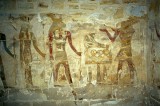
Amasis II
Amasis II or Ahmose II was a pharaoh (reigned 570 – 526 BCE) of the Twenty-sixth Dynasty of Egypt, the successor of Apries at Sais. He was the last great ruler of Egypt before the Persian conquest.

Artaxerxes I
Artaxerxes I was the fifth King of Kings of the Achaemenid Empire, from 465 to December 424 BC. He was the third son of Xerxes I.
He may have been the "Artasyrus" mentioned by Herodotus as being a satrap of the royal satrapy of Bactria.
In Greek sources he is also surnamed "long-handed", allegedly because his right hand was longer than his left.

Artaxerxes III
Ochus, known by his dynastic name Artaxerxes III, was King of Kings of the Achaemenid Empire from 359/58 to 338 BC. He was the son and successor of Artaxerxes II and his mother was Stateira.
Before ascending the throne Artaxerxes was a satrap and commander of his father's army. Artaxerxes came to power after one of his brothers was executed, another committed suicide, the last murdered and his father, Artaxerxes II died. Soon after becoming king, Artaxerxes murdered all of the royal family to secure his place as king. He started two major campaigns against Egypt. The first campaign failed, and was followed up by rebellions throughout the western part of his empire. During the second, Artaxerxes finally defeated Nectanebo II, the Pharaoh of Egypt, bringing the country back into the Persian fold after six decades.

Battle of Hattin

Cambyses II
Cambyses II was an Achaemenid king of Persia, who conquered Egypt in 525. He was the eldest son of King Cyrus II the Great. During his father’s lifetime, Cambyses was in charge of Babylonian affairs. In 538, he performed the ritual duties of a Babylonian king at the important New Year festival, and in 530, before Cyrus set out on his last campaign, he was appointed regent in Babylon.
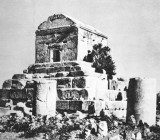
Cyrus II Great

Darius II
Artaxerxes I, who died in 424 BC, was followed by his son Xerxes II. After a month and half Xerxes II was murdered by his brother Sogdianus. His illegitimate brother, Ochus, satrap of Hyrcania, rebelled against Sogdianus, and after a short fight killed him, and suppressed by treachery the attempt of his own brother Arsites to imitate his example. Ochus adopted the name Darius. Neither the names Xerxes II nor Sogdianus occur in the dates of the numerous Babylonian tablets from Nippur; here effectively the reign of Darius II follows immediately after that of Artaxerxes I.
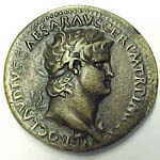
Emperor Nero
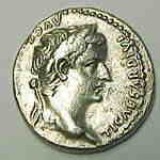
Emperor Tiberius

Erik Thorvaldsson zvaný Erik The Red

Fernando de Alba

Gaius Marius
An excellent military leader, reformer and politician. He entered the history of the Roman state with a fundamental reform of the Roman army, in which the recruitment of citizens who did not have land ownership was admitted for the first time. In addition, he reorganized the organization of the legion, whose basic unit became a cohort instead of manipul.

Generalfeldmarschall Helmuth Karl Bernhard Graf von Moltke
Chief of the Prussian General Staff and honorary holder of the highest Russian rank, General Field Marshal - his brief biography is the subject of the article.
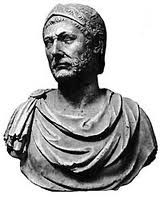
Hannibal Barkas - Carthaginian military leader
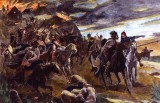
Hun attack on the Roman Empire
No one knows exactly where the Huns came from. Some scholars believe they originated from the nomad Xiongnu people who entered the historical record in 318 B.C. and terrorized China during the Qin Dynasty and during the later Han Dynasty. The Great Wall of China was reportedly built to help protect against the mighty Xiongnu.
By 370 AD, the Huns had arrived on the Volga, and by 430, they had established a vast, if short-lived, dominion in Europe, conquering the Goths and many other Germanic peoples living outside of Roman borders and causing many others to flee into Roman territory.

IV. crusade

Juan d´Austria

King Athaulf
Athaulf was king of the Visigoths from 411 to 415. During his reign, he transformed the Visigothic state from a tribal kingdom to a major political power of Late Antiquity.
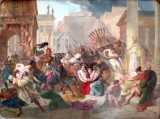
King Gaiseric
Gaiseric, also known as Geiseric or Genseric was king of the Vandals and Alans from 428 to 477 AD. He ruled over a kingdom and played a key role in the decline of the Western Roman Empire during the 5th century.
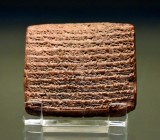
King Nabopalassar of Babylon
Nabopolassar was the founder and first king of the Neo-Babylonian Empire, ruling from his coronation as king of Babylon in 626 BC to his death in 605 BC. Though initially only aimed at restoring and securing the independence of Babylonia, Nabopolassar's uprising against the Neo-Assyrian Empire, which had ruled Babylonia for more than a century, eventually led to the complete destruction of the Assyrian Empire and the rise of the Neo-Babylonian Empire in its place.
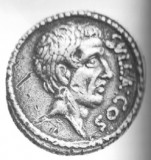
Lucius Cornelius Sulla
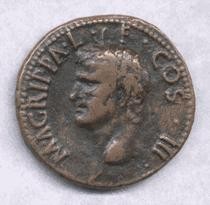
Marcus Vipsanius Agrippa

Maximilian I
Archduke of Austria, Emperor of Mexico. One of the few liberal and religiously tolerant Habsburgs, a man who, with his entire life as an idealistic and somewhat impractical dreamer, was so different from his relatives.
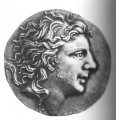
Mithridates VI Eupator
Mithridates or Mithradates VI Eupator was the ruler of the Kingdom of Pontus in northern Anatolia from 120 to 63 BC, and one of the Roman Republic's most formidable and determined opponents. He was an effective, ambitious and ruthless ruler who sought to dominate Asia Minor and the Black Sea region, waging several hard-fought but ultimately unsuccessful wars (the Mithridatic Wars) to break Roman dominion over Asia and the Hellenic world. He has been called the greatest ruler of the Kingdom of Pontus. He cultivated an immunity to poisons by regularly ingesting sub-lethal doses; this practice, now called mithridatism, is named after him. After his death, he became known as Mithridates the Great.

Muhammad ben Abdulláh ibn Battúta
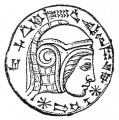
Nebuchadnezzar II
Nebuchadnezzar II, also spelled Nebuchadrezzar II, was the second king of the Neo-Babylonian Empire, ruling from the death of his father Nabopolassar in 605 BC to his own death in 562 BC. Historically known as Nebuchadnezzar the Great, he is typically regarded as the empire's greatest king. Nebuchadnezzar remains famous for his military campaigns in the Levant, for his construction projects in his capital, Babylon, including the Hanging Gardens of Babylon, and for the role he plays in Jewish history. Ruling for 43 years, Nebuchadnezzar was the longest-reigning king of the Chaldean dynasty. By the time of his death, he was among the most powerful rulers in the world.
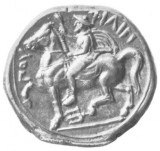
Philip II Macedonian

Prince Eugene of Savoy

Scipio Aemilianus
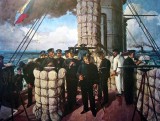
Togo Heihachiro
Marshal-Admiral Marquis Tōgō Heihachirō, served as a gensui or admiral of the fleet in the Imperial Japanese Navy and became one of Japan's greatest naval heroes. He claimed descent from Samurai Shijo Kingo, and he was an integral part of preserving Japanese artwork. As Commander-in-Chief of the Combined Fleet during the Russo-Japanese War of 1904–1905, he successfully confined the Russian Pacific naval forces to Port Arthur before winning a decisive victory over a relieving fleet at Tsushima in May 1905. Western journalists called Tōgō "the Nelson of the East". He remains deeply revered as a national hero in Japan, with shrines and streets named in his honour.

Tomojuki Yamashita
Join us
We believe that there are people with different interests and experiences who could contribute their knowledge and ideas. If you love military history and have experience in historical research, writing articles, editing text, moderating, creating images, graphics or videos, or simply have a desire to contribute to our unique system, you can join us and help us create content that will be interesting and beneficial to other readers.
Find out more